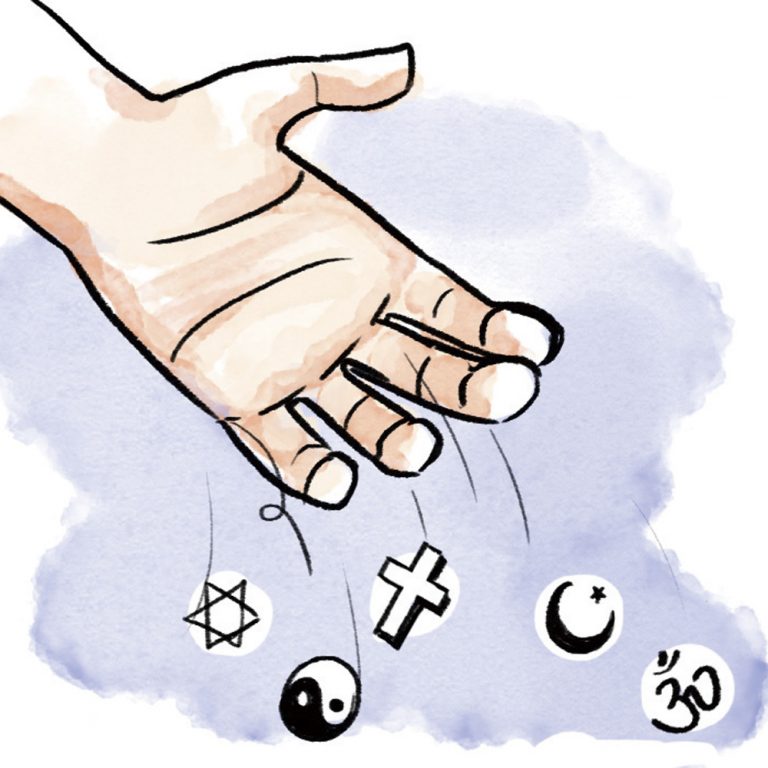
Michael Lin
Staff Writer
Studies show that young people today are becoming less religious than ever before, and many factors may very well play into this phenomenon. Globalization of western culture contributed to this, with youths today losing perspective because of it.
The amount of people who are educated has no doubt drastically increased compared to the past. When I refer to education, I mean the type of education that “civilized” people go through: Sitting in class, learning to read and write, and learning to do tests and worksheets, rather than knowledge passed down from generation to generation.
There is a trend pushing people to be obsessed with being educated, so that we can become intelligent, or smart, or rational. New scientific discoveries that overturn centuries of stigmas are exciting yet seem to convey a sentiment of distrust and antagonism against the past. The fact that the past is interpreted with the connotation that old ideas are outdated, biased, and non-scientific and therefore not credible.
In a first world country, this mentality is perhaps more widespread. We are taught to see the world in a scientific, numeric, rational way, all the while discrediting things that are yet to be explained through a few graphs and numbers. That is perfectly reasonable, (although I am a product of this conditioned mental state as well). Yet there is another thing that contributes to this rising distrust of religion.
With my limited time spent in East Asia, there are some differences that to this day I am unable to resolve. When I was a child, I was under the impression that people should not project their voices actively and should hold a docile view on the world. Whether it is out of respect for the land they live in, or a so called “third world country induced humbleness,” it is something I did not see as often after I moved to the United States.
What I am taught here is to be confident, to stand one’s ground, and to fight. Of course, I will gladly admit that this American mentality has caused many changes. Several key events like the Civil War and Civil Rights Movement are all proof of the benefit of the strong American mentality. However, with so much individualism and pride in human achievements, perhaps we are neglecting part of a natural (some would argue, a higher) order that we might all be a part of.
The culture reflects similar rational ideals. We worship characters like Sherlock Holmes because of his extreme rationality, and how he fights to break down every seemingly supernatural case into humanly understandable concepts. On the other hand, modern media seems to feed people with a distrust against people who choose to also include faith in their lives (although that is not without reason, with a certain radical religious bigot running as presidential candidate who denounces other religious organizations). People should know better than to trust only the world that media paints.
It’s certainly a somewhat lazy choice to just lump every unexplained phenomenon to a supernatural cause. The fact that English uses the word super-natural, somehow discrediting the normality of ‘supernatural,’ is concerning in itself. However, the opposite is just as irresponsible. Some might have the mentality that with each progressive discovery/invention, humans somehow strike down another layer of supernatural beliefs.
Personally, that is simply blatant American disrespect and arrogance: that we have uncovered all there is in the world so that we may come to a definite conclusion. It’s perfectly understandable to focus one’s attention on what’s immediately present, and be “rational” and “live fully.” Although, we college students bury ourselves with mathematical proofs and chemistry experiments, it’d be vain to assume everything outside of our current studies are invalid.
I’d hate to go out of my way to actively persuade someone to conceive the world like I do, but I see no contradiction in merely considering the possibility of the world functioning other than the way our mind can interpret. That, perhaps, is what religion is: considering the possibility. Yet, as we are exposed to more knowledge nowadays, we are prone to becoming less open to possibilities.
I think it is important that no matter what stage of scientific development we currently possess, it’s crucial to not forego the possibility of ‘there might be something out there,’ however one chooses to interpret such utterance. Once we completely shut down to possibilities and potentials in the world (or out of the world, for that matter), then we are just as guilty of intolerance as a certain presidential candidate. Keeping an open mind can most likely bring out the best in religion and beliefs, for either side of the matter, even among college students.










